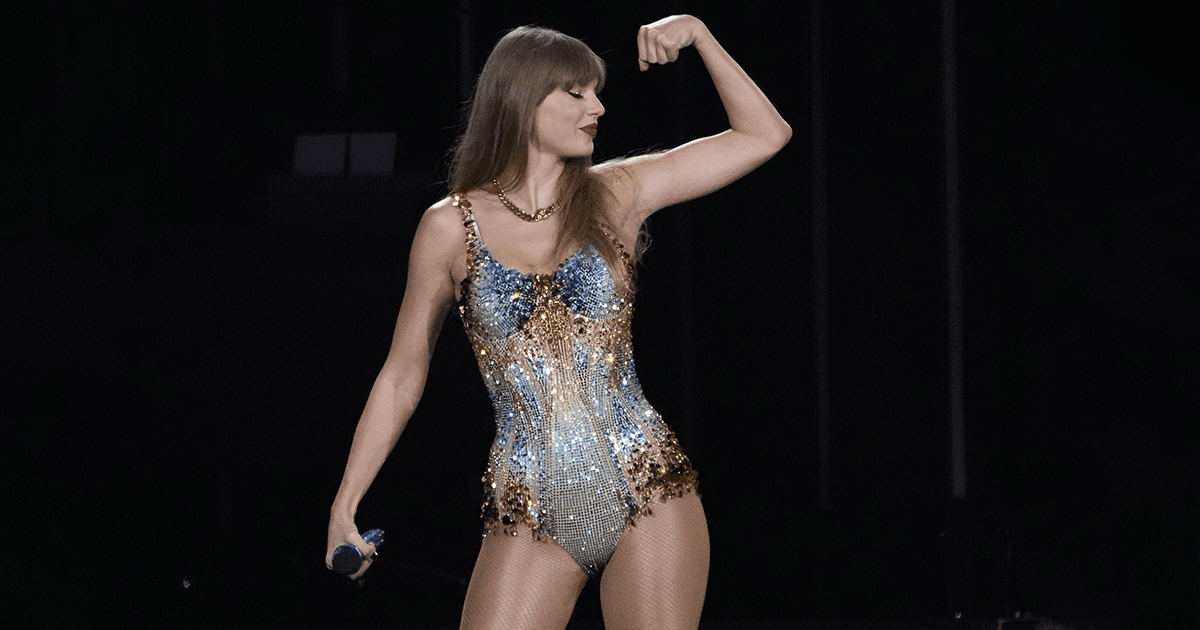Music is supposed to make us feel things, but for some weird reason, it has mostly come down to trends. We are a generation of reels and remixes, which is sad, given the lack of meaning in these songs and the immense talent that is left without space to experiment. So, when a music album like Qala’s hits our ears, it’s sure to leave us a little spellbound. Like a wise narrator, the songs from this film show us things that are out of sight. Given that Bollywood relies a lot on music, it’s only normal to expect songs to act as a bridge between the story and its characters. And it’s quite a delight to witness this after a long time.
The foundation of Qala’s story is the impact of music, and artists, which is why there’s strength to its album – the kind that makes us want to treat these songs as something revered. Not only that but there’s a sense of respect with which music has been treated in the film. There are scenes that talk about the need for lyrics to convey a deeper meaning – which almost seems like an indirect comment on what we’re lacking these days.
The beauty, however, is in the fact that each song in Qala acts as a catalyst for events that define the characters. Nirbhau Nirvair, for example, is an introduction to Babil Khan’s character Jagan, which is a lot about his thoughts that are otherwise unsaid. On the other hand, Phero Na Najariya is Qala’s (Tripti Dimri’s character) truth and her need to be seen by her mother. She finally confronts her without actually having to face her. Shauq and Udh Jaayega too lead us to the fate of different characters, which is dark. But the songs still manage to sound stunning. Again, that is the beauty of this music album – it will make you feel things without spelling it literally.
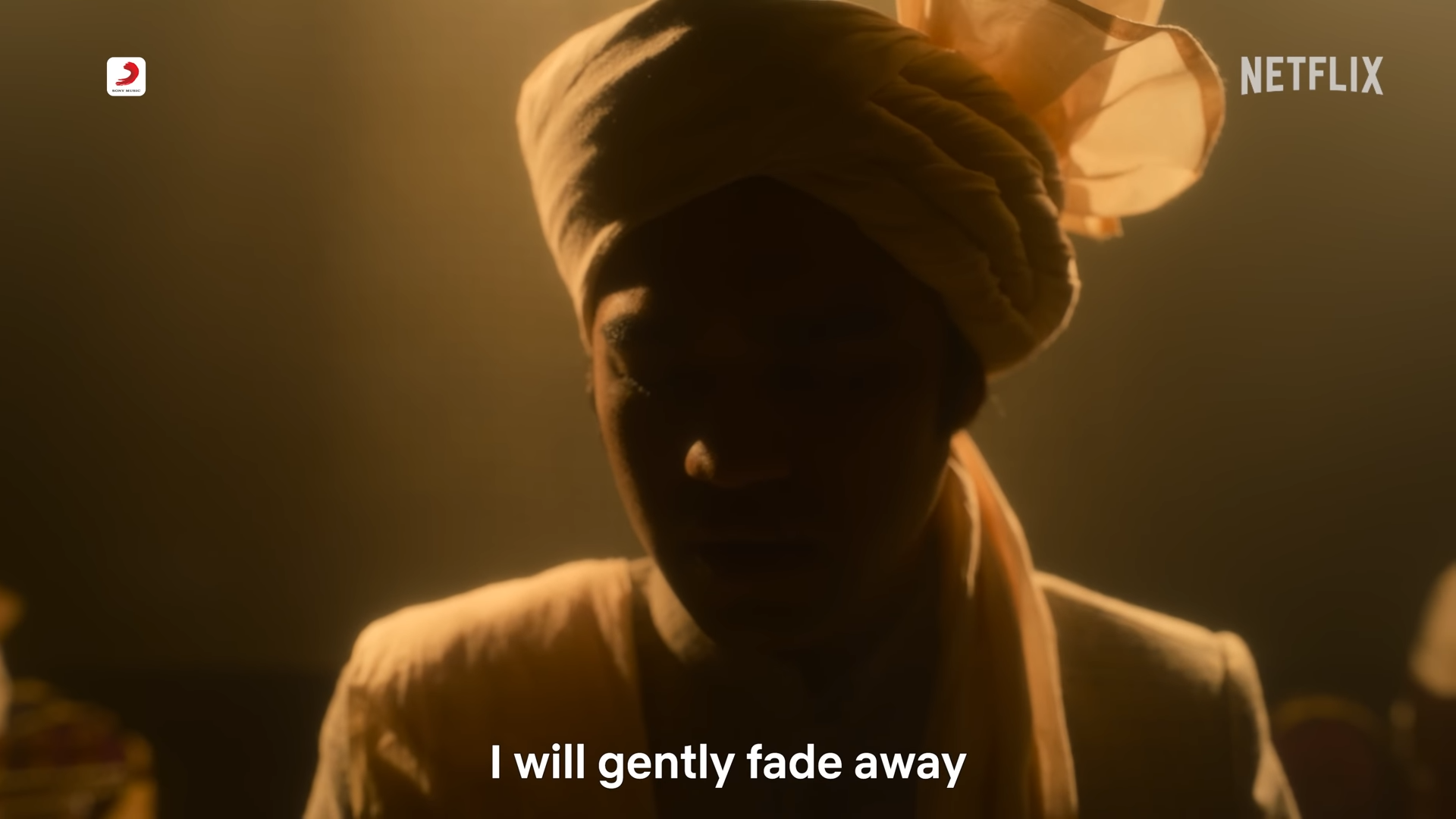
For me, it’s Ghodey Pe Sawaar that stayed, because of how it speaks in subtle ways. Probably because it sounds like a commentary on sexism, which stays relevant despite the setting of this film. For the producer (character in the film) who’s drunk on power, this song is ‘healthy’ flirting between a man and his ‘lady love’. But, the lyrics and Qala’s internal struggle say different things. In reality, it sounds like a satire on the male ego that doesn’t take ‘no’ for an answer. Or pretty much how flirting in a lot of old (some new) Bollywood films worked.
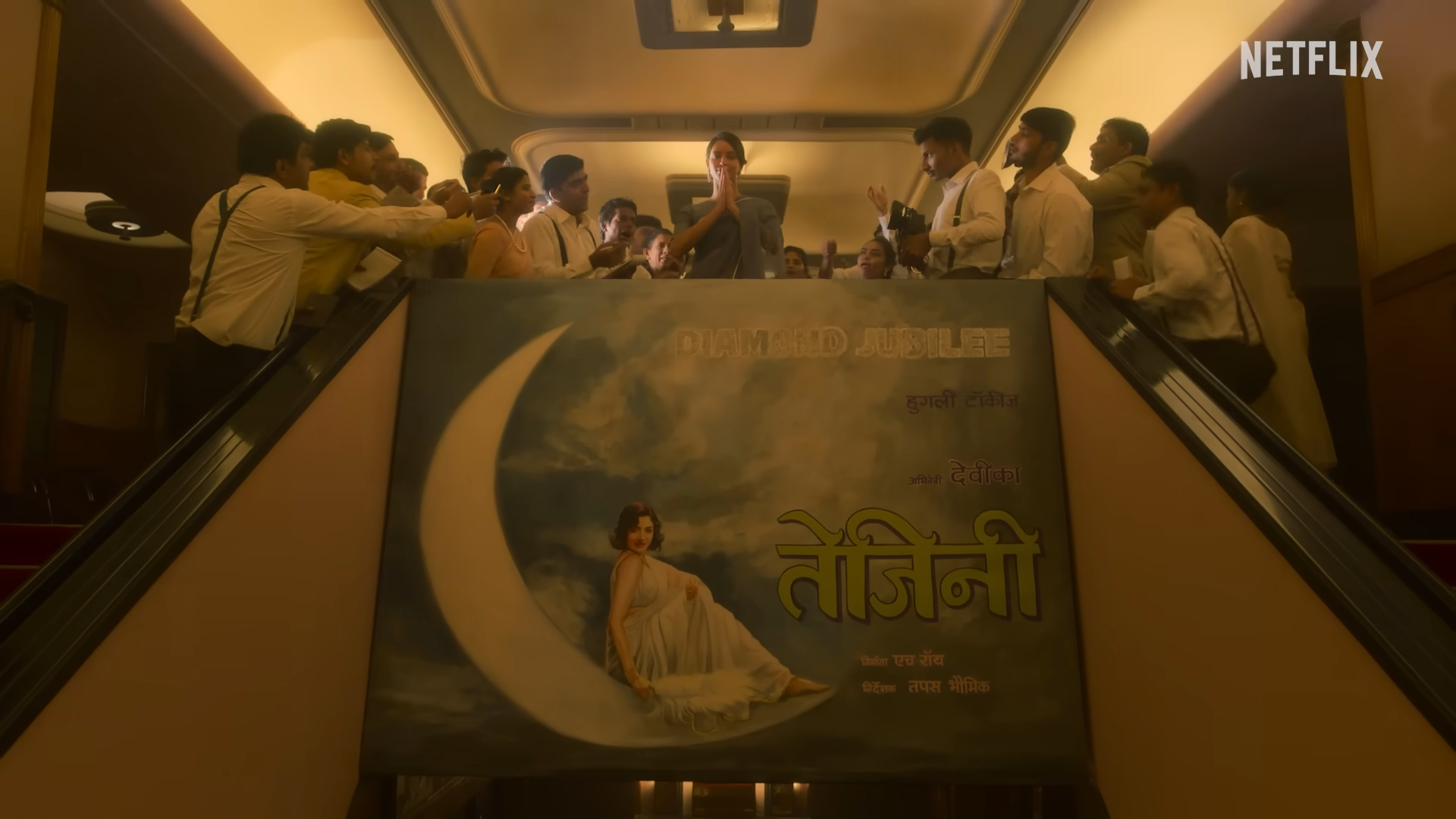
Like chai, long walks, comfort food, and an oversized hoodie, Qala’s music feels like perfect company. It has managed to resonate with different people, of different age groups, and brings up different emotions for them. It does, what music is supposed to do, specifically in a film. Unlike songs that randomly emerge from nowhere, Qala talks through its songs which are neatly woven into the story. Again, as they should be.
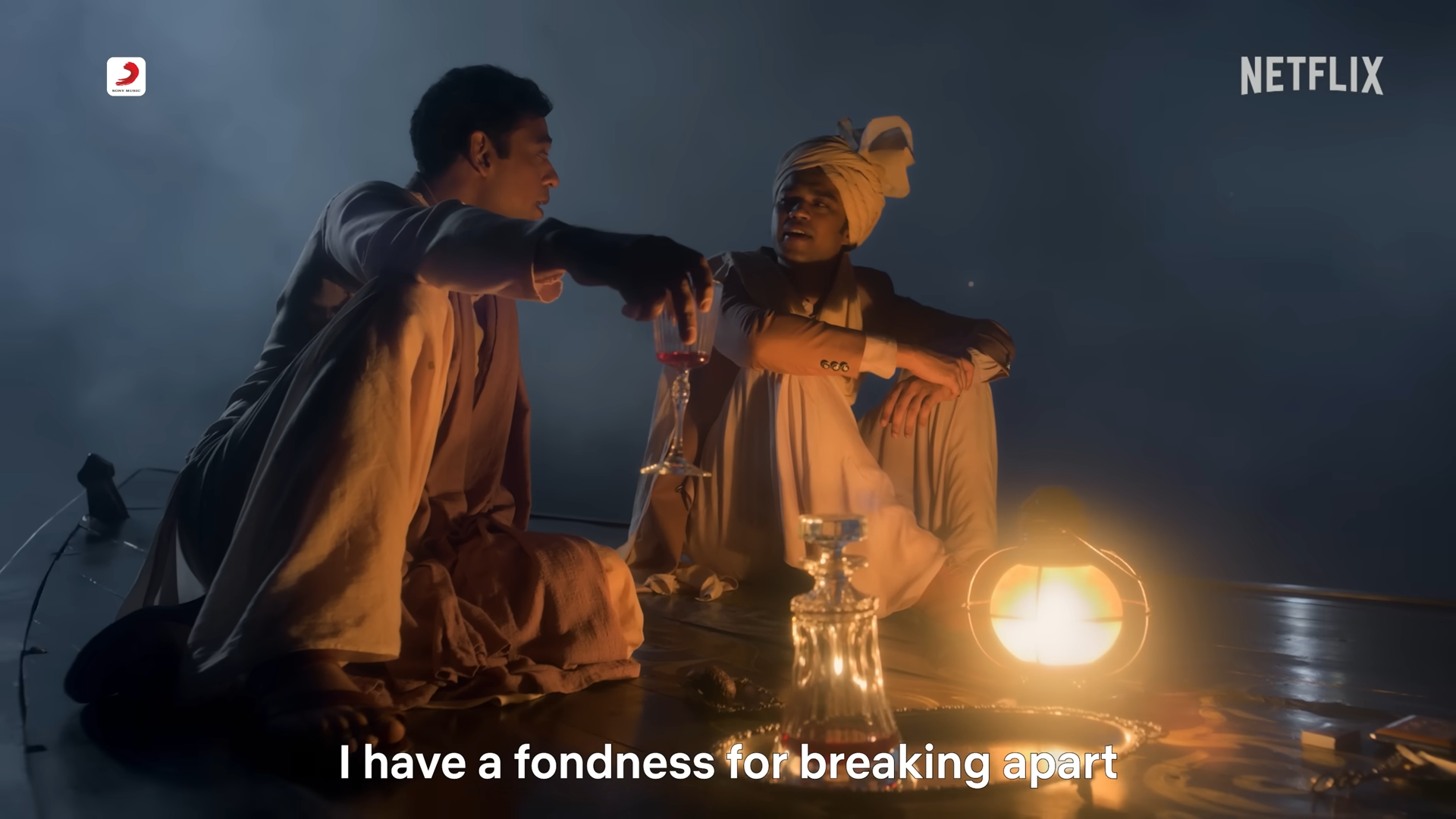
Composed by Amit Trivedi and Sagar Desai (Udh Jaayega), the lyrics are written by Amitabh Bhattacharya, Swanand Kirkire, Kausar Munir, Varun Grover, Sant Kabir and Anvitaa Dutt. The songs from its album are sung by Sireesha Bhagavatula, Shahid Mallya, Swanand Kirkire. The good part is, that its music manages to bring that old-school Bollywood vibe, without making it irrelevant. These songs and their lyrics connect on a great level with our ‘current’ ways of being.
The thing is, there’s clearly immense talent, when it comes to music in our country. But for some reason, we’ve distanced ourselves from what makes it unique. It’s not the thirty-second reel approach or the beats to dance to, with meaningless lyrics. Qala deserves acknowledgement for its carefully curated album, because in many ways it’s an ode to music as an art. And it doesn’t shy away from calling out our apparent ‘human nature’ of treating it as any less than that.
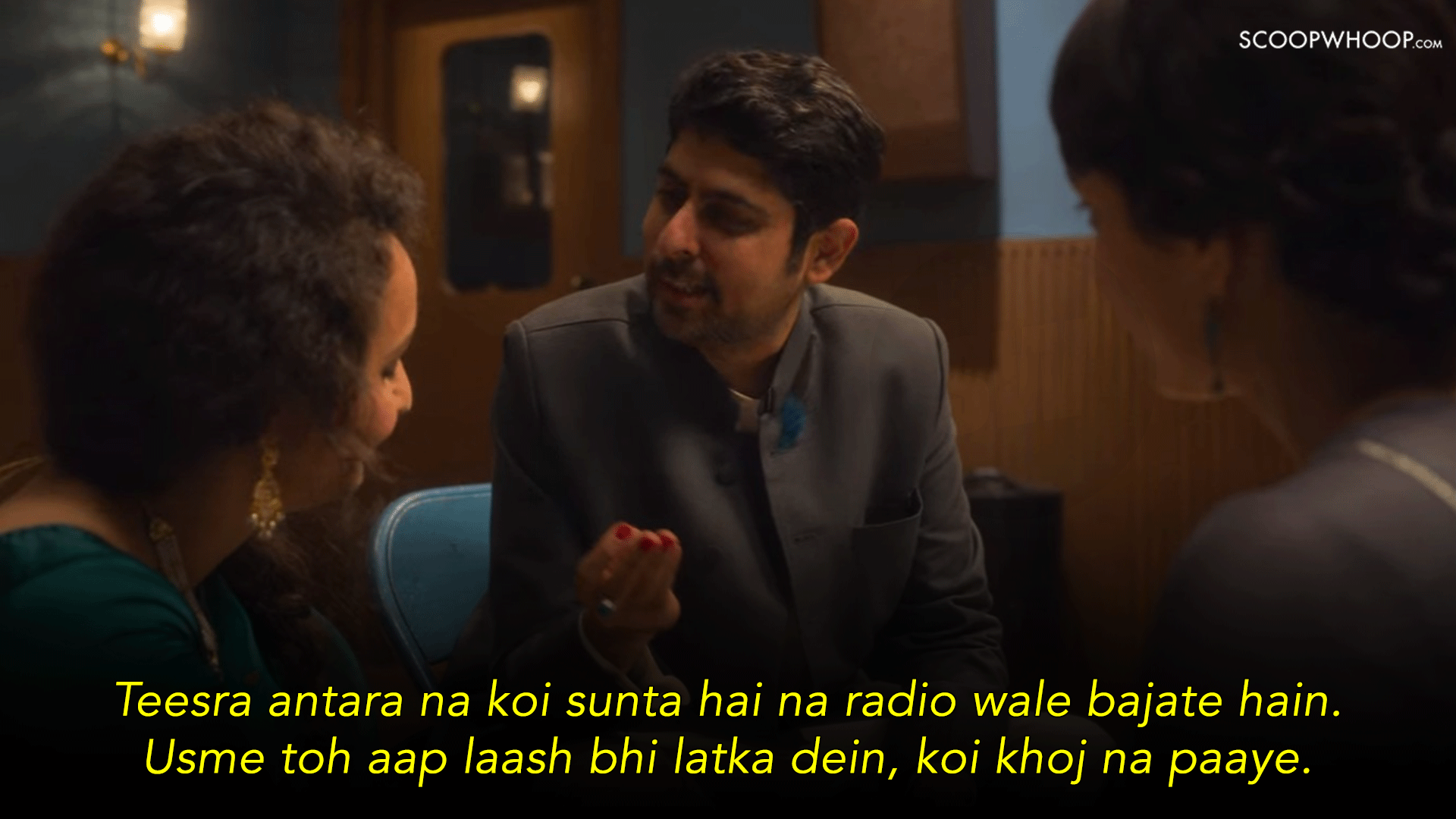
There’s a soothing flow with which a scene transitions into a song, and back to scene. This is something that we are not getting over anytime soon. It has sort of brought us hope that maybe, just maybe, we can get back the magic of the ‘good times’.





